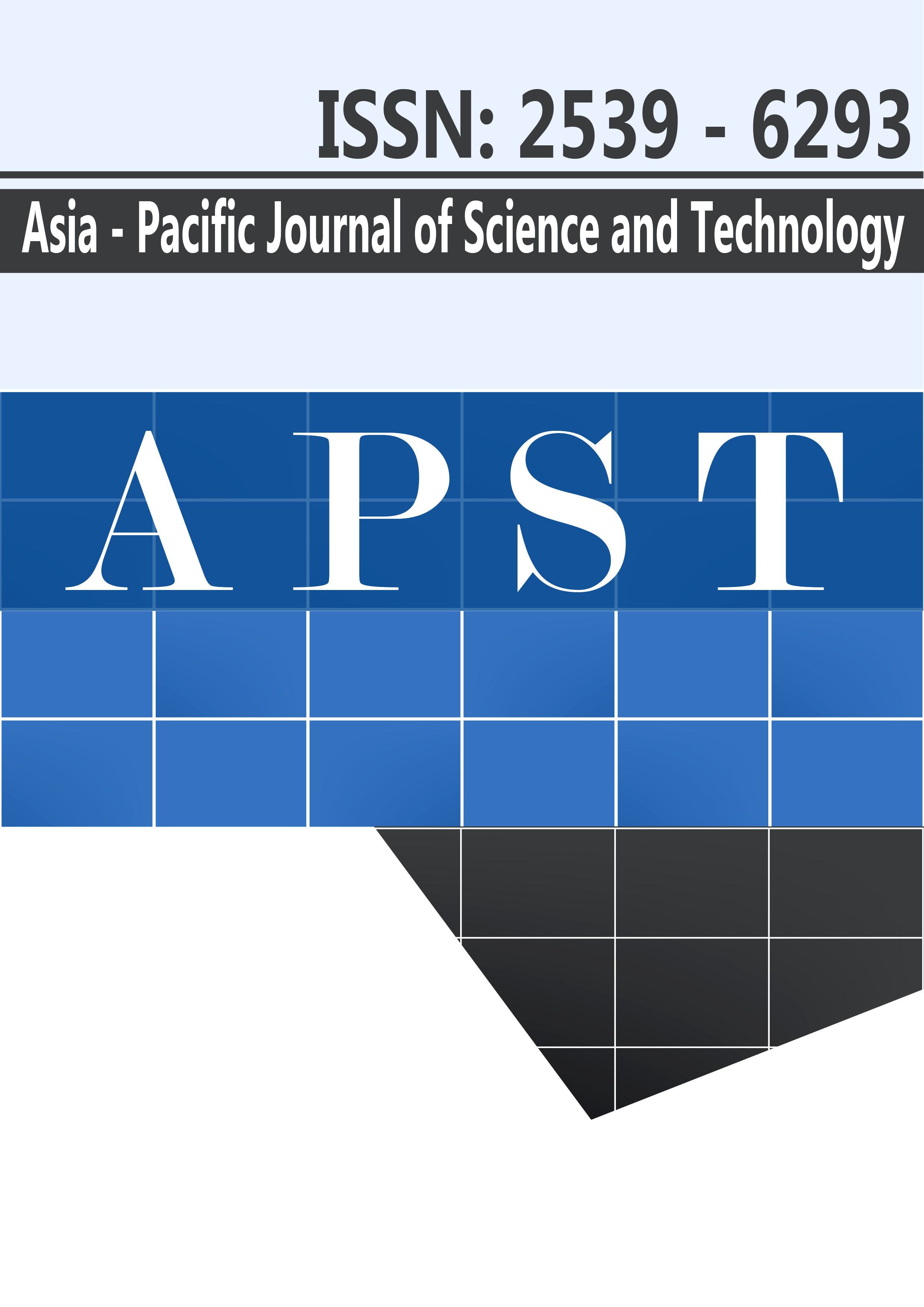Maintenance workforce optimisation in a process industry using differential evolution
Main Article Content
Abstract
In the past few years, differential evolution (DE) algorithms have been applied to solve system optimisation problems. Optimisation of workforce variables is a necessary requirement to make maintenance workforce planning. Since the effective control and monitoring of major system losses is tied to maintenance, the competent historical performance and potential of DE to optimise maintenance workforce variables has strongly inspired this work. The workforce optimisation structure depends on computations involving the following performance parameter: Production line availability, workforce size changes, cost of service rate improvement, workforce bonuses as well as penalty costs and then cost of spare parts. The developed framework used DE algorithm to optimise workforce including production and maintenance variables in an integrated framework. The model incorporates nonlinear integer model and weighted additive fuzzy goal programming model. The DE algorithm was used in generating Pareto solution for maintenance and production variables. The reliability as well as the effectiveness of the presented method was verified using practical real-life data from a process industry operating in a developing country. The obtained results showed that DE algorithm can generate accurate results with a fast convergence rate and good stability as genetic algorithm and particle swarm optimisation algorithm. The study could be replicated in other process industries such as drinks manufacturing.
Article Details
References
References
Alba, E., Luque, G. and Luna, F. (2007). Parallel meta-heuristic for workforce planning. Journal of Mathematical and Algorithms, Vol. 6, No. 3, pp. 509-528.
Alfares, H.K. (1999). Aircraft maintenance workforce scheduling: A case study. Journal of Quality in Maintenance Engineering, Vol. 5, No. 2, pp. 78-88.
April, J., Better, M., Glover, F., Kelly, J.P. and Kochenberger, G. (2010). Strategic workforce optimisation: Ensuring workforce readiness with optforce. Retrieved April 2015, from
http://www.opttek.com/sites/default/files/OptForce%20White%20Paper%202012.pdf.
Atif, M. and Al-Sulaiman (2015). Optimisation of heliostat field layout in solar central receiver systems on annual basis using differential evolution algorithm. Energy Conservation and Management, Vol. 95, pp. 1-9.
De Falco, I. (2013). Differential evolution for automatic rule extraction from medical databases. Applied Soft Computing, Vol. 13, No. 2, pp. 1265-1283.
Engelbrencht, A.P. (2007). Artificial Intelligence: An Introduction. England: John Wiley and Sons Limited.
Firat, M., Briskron, D. and Laugier, A. (2016). A branch and price algorithm for stable workforce assignment with hierarchical skills. European Journal of Operations Research, Vol. 251, No. 2, pp. 679-685.
Ghosh, S. (2014). A differential evolution based approach for estimating minimal model parameters from IVGTT data. Computers in Biology and Medicine, Vol. 46, pp. 57-60.
Haque, N., Virginas, B., Kern, M. and Owusu, G. (2008). An auction-based system for workforce resource allocation. New Frontiers in Applied Artificial Intelligence-Lecture Note in Computer Science, Vol. 5027, pp. 845-854.
Hargaden, V. and Ryan, S. (2011). Workforce analytics: Matching supply and demand in professional service firms. In: Manufacturing and Service Operations Management (MSOM) Annual Conference.
Heo, J-H., Lyu, J-K., Kim, M-K. and Park, J-K. (2012). Application of particle swarm optimisation to the reliability centred maintenance method for transmission Systems. Journal Electrical Engineering and Technologies, Vol. 7, No. 6, pp. 814-823.
Ighravwe, D.E., Oke, S.A. and Adebiyi, K.A. (2015). A reliability-based maintenance technicians’ workloads optimisation model with stochastic consideration. Journal of Industrial Engineering International, DOI10.1007/s40092-015-0134-6.
Ighravwe, D.E., Oke, S.A. and Adebiyi, K.A. (2016). Preventive maintenance task balancing with spare parts optimisation via big-bang big-crunch algorithm. Personal communication with authors.
Joines, J.A. and Houck, C.R. (1994). On the use of non-stationary penalty functions to solve nonlinear constrained optimisation problems with genetic algorithms. In: Proceedings of the IEEE Congress on Evolutionary Computation: pp. 579-584.
Le-Anh L., Nguyen-Thoi, T., Hottw, U., Dang-Trung H. and Bui-uan T. (2015). Static and frequency optimisation of folded laminated composite platesusing an adjusted differential evolution algorithm and a smoothed triangular plate element. Composite Structures, Vol. 127, pp. 382-394.
Mekidiche, M., Belmokaddem, M. and Djemmaa, Z. (2013). Weighted additive fuzzy goal programming approach to aggregate production planning. International Journal of Intelligent Systems and Applications, Vol. 4, pp. 20-29.
Monra, M. Azevedo, R.V., Droguett, E.L., Chaves, L.R. Lins, I.D., Vilela, R.F. and
Noktehdan, A., Karimi, B. and Kashan, A.H. (2010). A differential evolution algorithm for the manufacturing cell formation problem using group based operators. Expert Systems with Applications, Vol. 37, No. 7, pp. 4822-4829.
Pereira, C.M.N.A., Lapa, C.M.F., Antonio, C.A., Mol, A.C.A. and da Luz, A.F. (2010). A particle swarm optimisation (PSO) approach for non-periodic preventive maintenance scheduling programming. Progress in Nuclear Energy, Vol. 52, pp. 710-714.
Sethanan, K. and Pitakaso, R. (2016). Differential evolution algorithms for scheduling raw milk transportation. Computers and Electronics in Agriculture, Vol. 121, pp. 245-259.
Samuel, G.G. and Rajan, C.C.A. (2013). Hybrid particle swarm optimisation: Evolutionary programming approach for solving generation maintenance scheduling problem. Scientific Research and Essays, Vol. 8, No. 35, pp. 1701-1713.
Starkey, A., Hagrasa, H., Shakya S. and Owusu G. (2016). A multi-objective genetic type-2 fuzzy logic based system for mobile field workforce area optimisation. Information Sciences, Vol. 329, pp. 390-411.
Sitkin, S.B., See, K.E., Miller, C.C., Lawless, M.W. and Carton A.M. (2011). The paradox of stretch goals: Organisations in pursuit of the seemingly impossible. Academy of Management Review, Vol. 36, No. 3, pp. 544-566.
Yildiz, A.R. (2013). Hybrid evolutionary systems for manufacturing processes. Applied Soft Computing, Vol. 13, No. 3, pp. 1433-1439.
Wang, J., Lu, J., Bie, Z., You, S. and Cao X. (2014). Long-term maintenance scheduling of smart distribution system through a PSO-TS algorithm. Journal of Applied Mathematics, pp. 1-12.
Yare, Y. and Venayagamoorthy, G.K. (2007). Optimal scheduling of generator maintenance using modified discrete particle swarm optimisation. Symposium-Bulk Power System Dynamics and Control-VII, Revitalising Operational Reliability August 19-24, Charleston, SC, USA.
Zeng, X., Wong, W-K. and Leung, Y.-S. (2012). An operator allocation optimisation model for balancing control of the hybrid assembly lines using Pareto utility discrete differential evolution algorithm. Computers and Operations Research, Vol. 39, No. 5, pp. 1145-1159.


